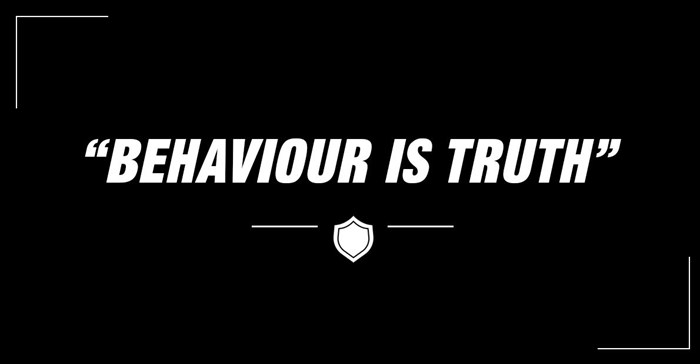
Related
Top stories

Energy & Mining#MiningIndaba: How GenAI is reinventing mine maintenance in South Africa
Maroefah Smith 2 hours





More news












In a world of increasing product parity, with heightened expectations and growing disillusionment, the importance of this role that we, as marketers can play, becomes increasingly important.
Fortunately, or unfortunately, in a world of social media, these observations brought to us by brands, need to have an underbelly of authenticity and consistency to them, as opportunistic, band-wagoning will get called out within seconds and are punishable in the global court of public opinion and the tills.
Few ads have caused as much instant outrage or massive support as Nike getting behind Colin Kaepernick controversially taking the knee, and whilst it seemingly destroyed his NFL career, it has seen him soar as a human rights icon and activist.
Whilst Twitter and Facebook were flooded by threats and demonstrations of people burning their Nikes, others were flooding into their stores or shopping online as the brand had touched their hearts and heads, leading to their share price surging by a massive 9.2% - or around $2bn growth in value.
I’d argue those who burned their sneakers only enhanced the desirability of the brand to many existing and new customers. It was a very bold move by Nike, and could have backfired significantly, but the brand has a rich history of getting behind what they believe in.
Brands today, who read the room sensitively, and offer meaningful emotional relief, inspiration, support and conviction, will reap bountiful rewards and significant competitor advantage.
Sadly, too many corporates and their brands are risk averse and therefore run away from taking a meaningful stand. They say a gram of loss, emotionally, weighs ten times more than a gram of gain, so we need to actively fight this risk aversion to stand for something. To be bold.
One of the brands I’m incredibly proud to work with is Nando’s who consistently lean in to giving relief to a particular tension and offering a fresh perspective on a situation.
At one of the most critical times in our country’s history (almost reminiscent of where we find ourselves right now with Covid corruption and huge national anger) Nando’s came forward to give the country hope.
It was in the dying days of the Zuma “presidency” and at a time of national rage about #StateCapture and the bizarre role the Gupta family had been allowed to play in massively looting our country. Together with Nando’s we created the “We fix our shit” campaign that ended off with showing the Guptas running away from the country with bags of cash. The brand called it, as it was just a few short months later that this family did actually skedaddle to Dubai. If ever life imitated art.
But what Nando’s did in that campaign, was plug into a deep truism about this magnificent but fragile country we call home. That we do indeed fix our shit. That it may take many decades to overcome a tyrannical regime like that of apartheid, but ultimately, we triumph. We are at our very best, when we are active citizens and become gatvol. That’s when things change and improve. Nando’s reminded us of that in both this, prior and subsequent ads. And it gives us both belief and resolve.
Brands also give us insight that we may not necessarily have had prior to the viewing. One of the most important ads I recall seeing was Apple’s 1984 ad based on George Orwell’s iconic and almost apocalyptic vision of what our future might be.
It was first flighted in December 1983 and was directed by none other than Ridley Scott who the year prior, had done the mesmeriSing Blade Runner, one of my all-time favourite films, and truly defining for its epoch. Ad agency Chiat/Day well understood there was no margin for error in selecting a director for this futuristic mega-production. So, there I was as a 17 year old kid, in matric, sitting at the Kine 500 cinema in Port Elizabeth, engaging with the Apple brand and Macintosh for the very first time and hearing “why 1984 won’t be like 1984”.
Many years later I sat with legendary copywriter, Steve Haydn in New York, whilst on the Ogilvy “global brains trust” (the man who actually conceptualised this particular ad) and heard his fascinating stories behind its production.
1984 not only captured the world’s imagination but set Apple on a path to create some of the world’s most innovative and intuitive products and advertising under the watchful eye of perfectionist, Steve Jobs. Their follow up ad “Here’s to the crazy ones” again, ignited a spark in the hearts and minds of “rebels and misfits” the world over and in no small way contributed to it becoming the world’s most valuable company. A brand that literally celebrates the “square pegs in round holes” and gave the world permission to believe that odd and different is good. The antidote to conformity.
More recently brands like Dove have weighed in to the space of natural female beauty, much like Benetton did in the 80’s & 90’s through their then controversial “United Colours” ads which challenged, shocked and confronted. Today, they’d be the norm. But in their day, they pushed society uncomfortably forwards.
Brands like P&G with their “thank you mom” ad done for the 2014 Olympic Games which got us to reconsider the powerful roles mothers have played behind the successes of these phenomenal athletes, and far closer to home, within our own lives.
And brands within South Africa, that during our transition to a democracy, normalized our strange society, be it Vodacom’s Yebo Gogo ads where the Black protagonist would help his clumsy White friend out of a myriad of tricky moments by simply making a call, where these humorous ads were nation building in and of themselves or Castrol’s Boet en Swaer when Moegae joined the “practice”. They were easy and uncomplicated ways of unlocking and embracing a new reality.
And then last year’s famous Gillette’s Believe ad “The best a man can be” may have had echoes of past P&G corporate commercials, but felt like such an ad hoc campaign for the razor brand itself. The proof of the pudding will be if this ad heralds a new dawn in addressing “toxic masculinity” as part of its DNA or was simply an “of the moment” tv commercial. And this is where brands need to be very careful.
When you take a proud and bold stand for something, a higher order value if you like, it’s not an experiment but a commitment. Customers will hold you accountable for living those values, on the shelves, in your supply chain and at head office. Your behaviour as a brand needs to match your preaching. Interestingly, their female range of disposable razors are still pink and called Venus.
I recently watched a wonderful ad for fashion outlet Zalando which celebrates individuality as they call out criticisms through commentary like “Too dolled-up, too denim, too chic, too flashy, too yellow” etc in their “Stand By Your Style” campaign. The brand is empowering and gives their customers permission to wave their freak flag and flaunt their personality and it ends with a rightful proclamation to all this negativity of “And I love it”.
So, brands indeed have a wonderful, creative and powerful role to play in society in addressing inequities, in talking truth to power, in inspiring, challenging, giving reasons to believe and enhancing a sense of self, and even promoting a fairer and more just world.
Or, they can sit on the shelf, like their competitors and simply offer their generic functional benefits. Because what many marketers and corporate leaders often fail to realise, is that “soft-sell” is often the hardest sell of all, as it can remove the brand from the contested category and create compelling, ownable and fertile open space.
